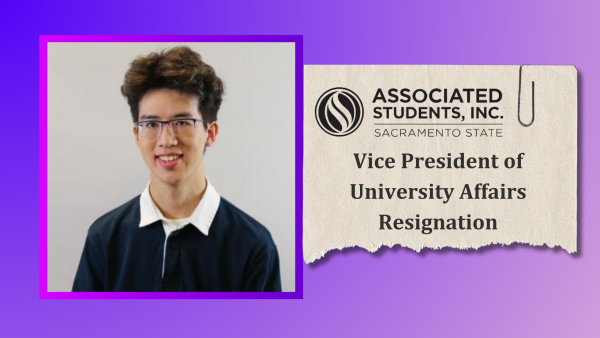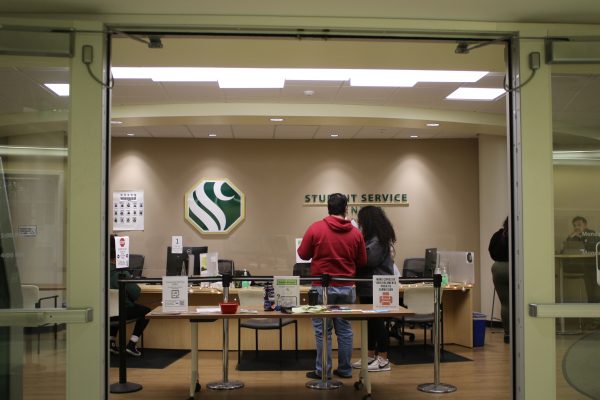CAPS seminar explores origins of sleep disorders
November 9, 2011
Counseling and Psychological Services presented a “sleep hygiene” workshop Nov. 2 to help students learn about the causes of sleep disorders and four healthy habits for their treatment.
Psychologist Regina Kentner hosted the free event for more than 20 students in the Aspen Room at the Well, which overlooks Hornet Stadium.
“I think it went fairly well and I am very happy with the turnout,” Kentner said.
Maintaining a regular bed time, Kentner said, and avoiding naps or limiting them from 20 to 30 minutes is the most basic part of sleep hygiene.
Average adults need seven to nine hours of sleep a night, according to the National Sleep Foundation’s website.
Proper sleep hygiene, Kentner said, can also be cultivated by diet, environment, activities and natural remedies.
The workshop focused on two sleep disorders, including Insomnia, or the inability to maintain or initiate sleep, and hypersomnia, or excessive daytime sleepiness. Long term effects of both include irritability, stress, anxiety and depression.
Other more serious medical conditions related to sleeplessness include sleep apnea, narcolepsy, restless leg syndrome and hyperthyroidism, according to the Center for Disease Control.
College diets are often loaded with excess caffeine and sugar found in coffee, tea, soda and energy drinks especially, but should be avoided within six hours of a targeted bedtime, Kentner said.
Eating or drinking too much before bed, including alcoholic beverages and spicy or acidic foods may also disrupt sleep, Kentner said, while going to bed hungry should also be avoided with a light snack.
Students at the workshop learned how to create a sleep-promoting environment with a quiet, dark and relaxing space, which can be challenging in shared living spaces like a residential hall.
Sound machines and floor fans can provide consistent or ambient “white noise,” Kentner said, but other gadgets and technology should be removed.
The temptation to look at phones and computers kept near the bed late at night can be a distraction, so Kentner recommends a relaxing activity like a bath, shower, yoga, aromatherapy or prayer.
Homeopathic, or natural, non-medical sleep aide options include magnesium, legumes, seeds, and dark, leafy greens or chamomile tea, Kentner said.
Aromatherapy and chamomile tea are Kentner’s personal favorites, she said, and recommended floral essential oils like lavender, chamomile and ylang ylang infused in a burner or sprayed on bed linens.
Kentner said she encourages students to contact a medical provider or health professional before taking an over-the-counter sleep aid, especially if they are taking other medications.
“I personally would stay away from over-the-counter meds,” she said. “There are other options perceived as more natural – like melatonin.”
Christine Saunders, undeclared sophomore, attended the workshop as part of a Student Organization and Leadership initiative.
“I thought it was interesting,” Saunders said. “I wasn’t even aware of hypersomnia.”
Saunders said she would recommend the workshop to other students who are struggling with sleep disorders and found some of the suggestions surprising.
“I didn’t think about getting up and doing something if you can’t get to sleep after 20 minutes of lying in bed,” Saunders said. “I will try that some time.”
Eugene Bruhanski, a junior recreation major, said he suffers from insomnia and is going to try taking magnesium and chamomile tea.
“I work 4 p.m. to midnight at a hotel, so my schedule is always off,” Bruhanski said.
Kentner’s final recommendation to students was to keep a sleep journal to share with a doctor that details habits around going to bed, like food and alcohol consumption and exercise, including sex.
This workshop was the first presented this semester as part of a series Kentner hopes to eventually develop about sleep, test-taking and study skill habits as some of the many issues confronting students mid-semester.
The sleep workshop was specifically created after physicians in the health center encountered students with sleep trouble, Kentner said.
Twelve students reported insomnia this year and 29 last year, according to a report provided by Lisa Johnson, associate director of clinical operations for Student Health and Counseling Services.
Johnson said 356 students were seen for anxiety or a related disorder in 2010-11 compared to 210 this year, whereas stress cases are numbering 64 versus 29 respectively.
The center saw 32,376 visits overall in 2010-11 fiscal year and 11,714 visits year-to-date in 2011-12, Johnson said.
All of the curriculum presented in Kentner’s presentation came from The Sleep Foundation and Center for Disease Control websites.
Poul Larsen can be reached at [email protected]






































































































































